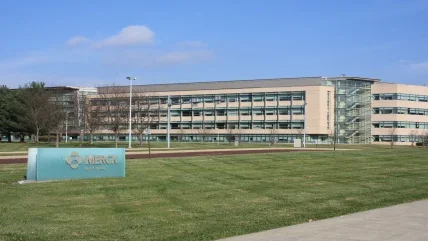
Pearl Bio, a synthetic biology company backed by Khosla Ventures, has partnered with Merck, (MSD outside of the US and Canada) to discover biologic therapies with non-standard amino acids.
The two companies have signed a license, collaboration, and option agreement.
Under the agreement, Pearl will receive up to $1bn in upfront, option and milestone payments, in addition to potential royalties on sales of the products derived from the collaboration.
The collaboration will initially focus on the discovery and development of biologic therapies for the treatment of cancer, using Pearl’s exclusive GRO technology.
The technology allows working in both cell-based and cell-free systems and in-house tethered ribosomes to encode synthetic monomers and target previously inaccessible epitopes.
Building on the deep expertise and patent portfolio licensed from the labs of Pearl Bio co-founders, Farren Isaacs and Michael Jewett, the partners will strengthen the collaboration.
The labs use genetically recoded organisms (GROs) to encode synthetic chemistries, paving the road for entirely new classes of multi-functionalised biologics with tunable properties.
Pearl Bio co-founder and president Amy Cayne Schwartz said: “We are excited to demonstrate the power of Pearl’s technology in our partnership with Merck to create multi-functionalised therapeutic candidates with tunable properties solving for some of the key shortcomings confronting biologics.”
Merck Research Laboratories biologics discovery vice president Juan Alvarez said: “Merck is excited to collaborate with Pearl, a pioneer in developing recoded organisms, to produce novel biologics enabled by synthetic chemistries.”
Earlier this year, MSD signed an agreement to acquire cancer drug developer Harpoon Therapeutics in a deal worth $23.00 per share cash, or a total equity value of up to $680m.
Harpoon has developed a portfolio of T-cell engagers using its patented Tri-specific T-cell Activating Construct (TriTAC) platform and ProTriTAC platform.
Its lead candidate HPN328 targets delta-like ligand 3 (DLL3), an inhibitory canonical Notch ligand that is highly expressed in neuroendocrine tumours and small cell lung cancer (SCLC).






